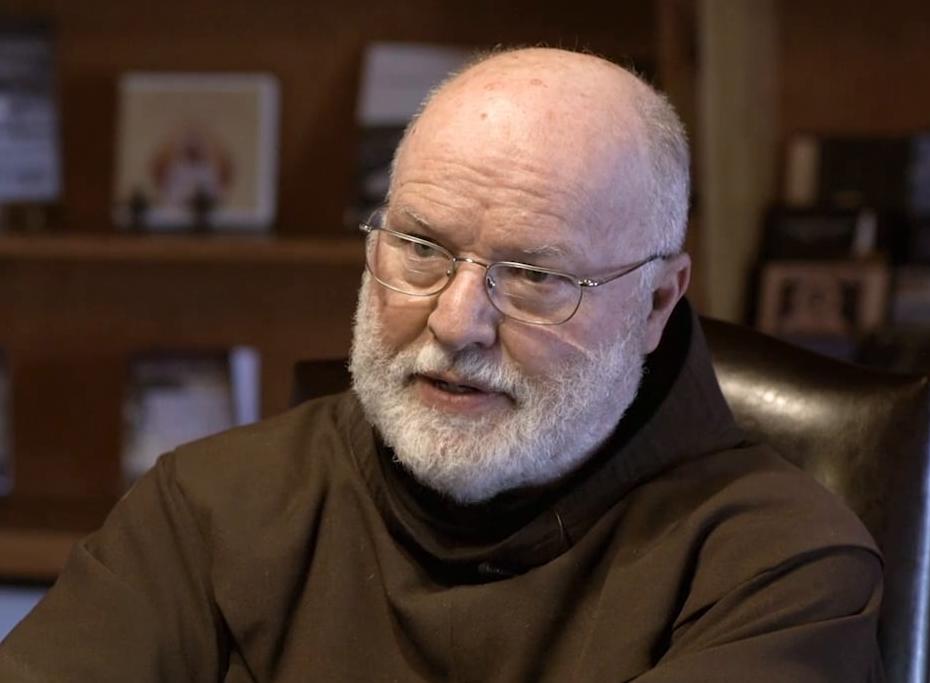The same questions could be asked of each of us in with respect to the lives that we have been called to live. After all, mysticism is not just for those who give up their worldly possessions in exchange for a simple robe, it is for anyone who truly wishes and strives to seek after it.
As many who are called to the monastic way of life will tell you, giving up our fancy clothes and putting on a simple robe is probably the easiest part of what we do. Self-examination, a constant attitude of prayerfulness and a life of putting others’ needs before our own wants - these things are the hard parts of our calling to make a way of life out of actively searching for the God of our hearts. That is not to say that our lives are filled with suffering, or that these difficult things prevent us from finding happiness; on the contrary, the monastic way of life brings with it a kind of joy that is both exquisite and indescribable, and many gifts that we, as hermits, monks, nuns, friars and sisters would often not have found by any other means. To be honest, I stumble concerning those things which I am called to do. I get angry, I harbor uncharitable thoughts, I miss prayer times and I have been known to purchase things that I do not need, either out of impulse or a fear of not having enough. In short, I fail to trust in God, and I fail to always seek after God. My faults aside, I have found in my life that many people are perplexed by the idea of indescribable joy in relation to God. The God that they have heard of through various means such as their church leaders, misinterpretations of texts held as holy and society in general paint for them a picture of an angry, judgmental and wrathful creature who examines their every thought and action, looking for faults, shortcomings and their good intentions which are “not-good-enough” in this awful and enraged being’s eyes. Who could fall in love with a God such as this? Who could be inspired to carry out charitable works that uplift the poor and the broken? Surely some could be moved to these tasks, but their inspiration comes from a place of fear and paranoia as opposed to the place of indescribable love and joy that was mentioned earlier. Who would want to live their life in such terror? And yet so many people do. They crowd into churches to hear the woeful tales of The Dictator-God and fall on their their knees to beg forgiveness of sins they are not even guilty of. This happens week after week, and for many, this happens for the entirety of their lives. What a sad and terrible way to live. So how did so many overcome this terrible image and find the profound and inexpressible love and joy that mystics, monastics and people who make their own daily lives an expression of prayer? Now, I’m no expert, but I would venture to say that these kinds of ecstatic experiences began with the words “Be still.” Someone, somewhere heard these words and took them to heart, and in that sweet stillness they found something so exquisite that their only choice was to make a life out of trying to experience it again and again. This practice would come to be known as mysticism, and it can be seen in virtually every faith known to humans. The great thing about mysticism is that a person need not give up all their earthly possessions and take on a life of discipline and simplicity (although some choose to do so) in order to experience the innumerable benefits that it has to offer; a person simply needs to make an intentional practice out of being still before God. I say this, not to discount the lives of those who have given everything in favor of prayerful discipline and simplicity, but to invite everyone to escape the bonds of fearful living and enter the valley of absolute delight which is the love of God. As anyone who has glimpsed this bright and beautiful place will tell you, visiting it will not free you from the day-to-day monotony, the ups-and-downs, doubts, and the sometimes overwhelmingly painful state of human existence. This joyful beauty will, however, when integrated into the very fabric of who you are, make all of these things easier to deal with. So, in your bustling and hurried lives, you might consider taking 10 small minutes each day to try and be still. Leave your cares, your worries, your to-do lists and your ego at the door to a quiet room and just be still. You may be surprised how, little by little, you are transformed from within from a fearful and wrathful person into a joyful and loving one.
0 Comments
Your comment will be posted after it is approved.
Leave a Reply. |
AuthorsReflections from the monks and nuns of OES. Archives
February 2019
Categories |

 RSS Feed
RSS Feed
